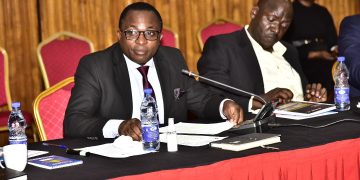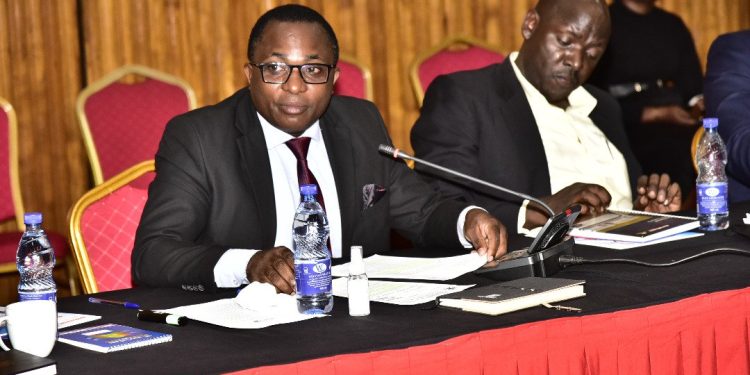Private Sector Foundation Uganda (PSFU), and Uganda Debt Network have called on government to widen the tax base as a way of saving the declining economy.
The private sector players said that government should be creative and increase the number of tax contributors by exploring sectors where little revenue is collected.
Appearing before the Committee on National Economy on Wednesday, the Chief Membership Officer at Private Sector Foundation, Francis Kisirinya said the claim that Covid-19 and the war in Ukraine are responsible for the economy’s poor performance was misleading.
“The National Budget Framework Paper recognises a slowdown in economy, but it is not true that this slowdown is because of Covid-19, because even before the pandemic the economy was poor,” Kisirinya said.
Richard Mubiru, a board member at UMA said components such as rent have had low tax revenue collections yet the real estate sector is booming.
“From what we know about this sector, we can tell you that not even 25 per cent is collected in terms of tax revenue. If you cannot collect even 50 per cent from a sector, how dare you complain that you do not have money?” asked Mubiru.
He noted that most middle class Ugandans evade rental tax and advised government to identify an entity that would assist Uganda Revenue Authority which he said is under staffed and unable to reach a substantial size of potential contributors.
“There is mediocre performance in this sector; most middle class Ugandans are culprits for this tax component, yet you can never hide rentals. Why don’t we dedicate people to work with URA to collect rental tax and get them incentives?” Mubiru said adding that, ‘in the business sector that’s how we manage; business is driven by incentives and government is yet to realize that human beings respond to incentives’.
He said manufacturers want government to exploit the use of national identity cards to track people in the informal sector to be able to make tax contributions.
“We got national IDs; we can extract land data, registration data… such that we are able to tap into the bulk of Ugandans who have chosen to remain informal yet they are doing well,” Mubiru said.
He also warned against the increasing penalties on tax returns which he said will discourage business and ultimately revenue.
“You are seeing the recovery in tax revenue but much of it are penalties. If you think you will kill businesses by penalizing them, you will have nobody to tax tomorrow. We should instead improve compliance. ,” said Mubiru.
Bugabula County North representative, John Teira, said he was equally concerned that tax penalties are pushing investors out of business.
“Game Stores closed its operations in Uganda because it had tax penalties of Shs20 billion. Big entities are closing businesses, are we saying we would rather close businesses?” he asked.
MPs noted that legislation should take into consideration such economic aspects and leverage investments while passing budgets.
“This year we presented a very good budget; we are providing infrastructure but impoverishing people. We should leverage investment opportunities even in our legislation,” said Teira.
Makindye Division East MP, Derrick Nyeko said government was responding to the economic decline by cutting on expenditure such as the merger of agencies.
He asked the private sector players to support the proposal to merge PSFU and other players such as the Uganda Investment Authority.
“Government is broke; I agree with you that we need to cut costs. That is why we are merging agencies. We do not need to spend money on different organizations doing the same things,” said Nyeko.
However, Private Sector Foundation Uganda (PSFU) is not a government agency that can be merged with other government agencies.
Mr. Kisirinya implored Parliament to reject the proposal of merging PSFU with government agencies.









